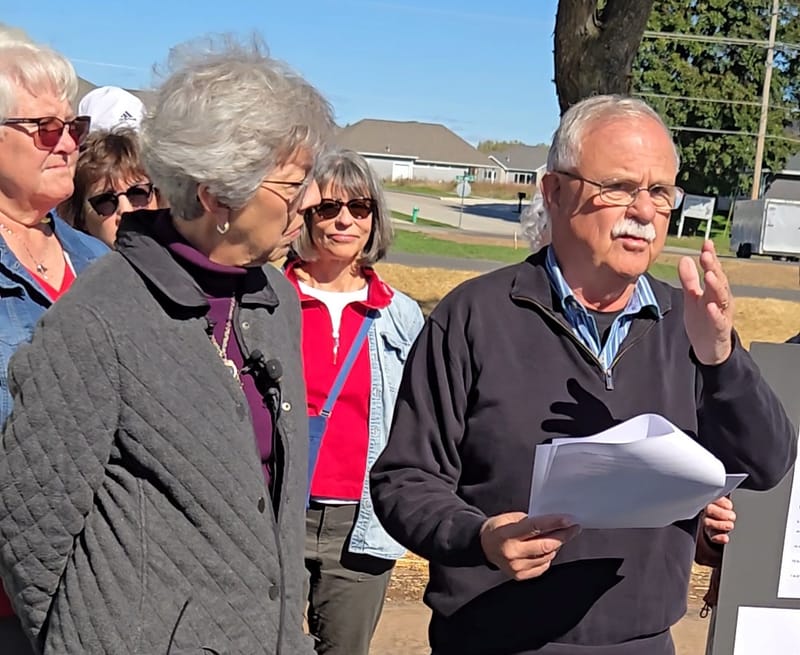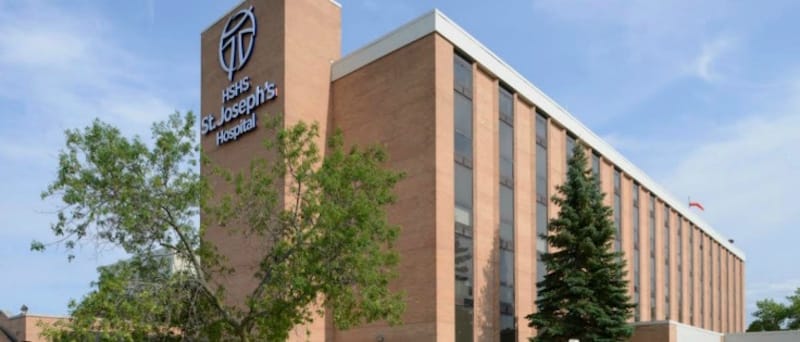Folks impacted by Medicaid cuts tell their stories at Kaukauna listening session
A 10 percent reduction in federal funding for Medicaid would require Wisconsin to either increase state spending by $600 million per year or reduce the number of people on the program.
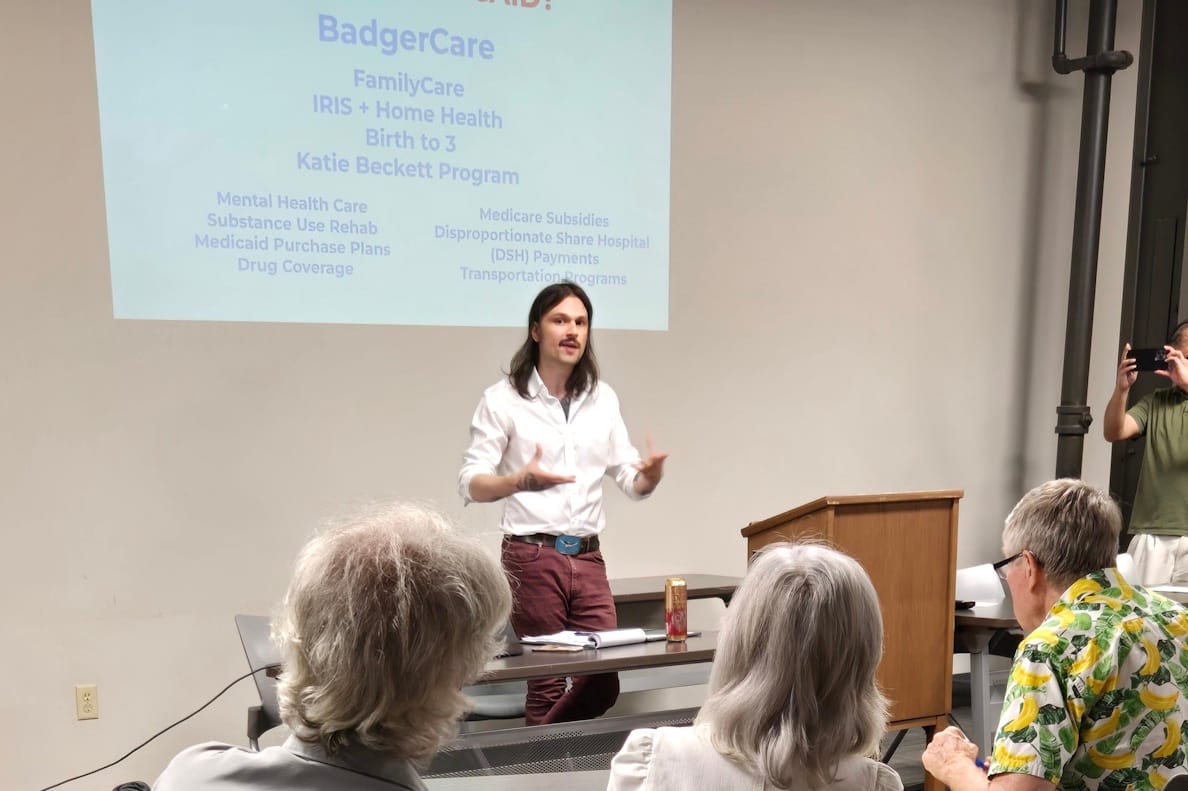
The Medicaid debate isn’t just about the numbers. It’s about real people and the quality of their lives.
Because of Medicaid, Carrie’s adult son Alex is living in a nearby group home, which allows the family to stay close. With her voice shaking, Carrie shared her concern about Medicaid cuts. “If his group home closes, will there be enough beds available for people to relocate to?” she wondered “Will there be options in their same community where they can keep their community connections? Alex deserves to have a safe, supportive life that enables him to be as independent as he can be.”
Chelsea is wheelchair bound and needs constant assistance. Medicaid enables her to live independently with the support of a caregiver. “I already struggle to retain the caregivers that I have due to the rate at which they get paid,” she said through tears. “So, if these cuts go through, I will lose even more hours, which means I won't be able to go to bed, or I won't be able to eat.”
Tim has been without health insurance for more than four months. He works as much as he can – about 20 hours a week – but is limited due to his physical conditions. At times, he earns too much for Medicaid. Other times, he earns too little for the ACA Marketplace. He is stuck in a seemingly never-ending paperwork cycle. In the meantime, he is unable to keep his doctor's appointments or get his prescriptions filled.
These personal stories were shared at the Medicaid Matters Forum on June 26, sponsored by the Heart of the Valley Community Connections. About 40 people gathered at the Kaukauna Public Library to learn more about Medicaid. Speakers included Tim Faust (Citizen Action of Wisconsin), Senator Kris Dassler-Alfheim (D-Appleton), Tom Nelson (Outagamie County Executive), and Dr. Anna Igler (Physician).


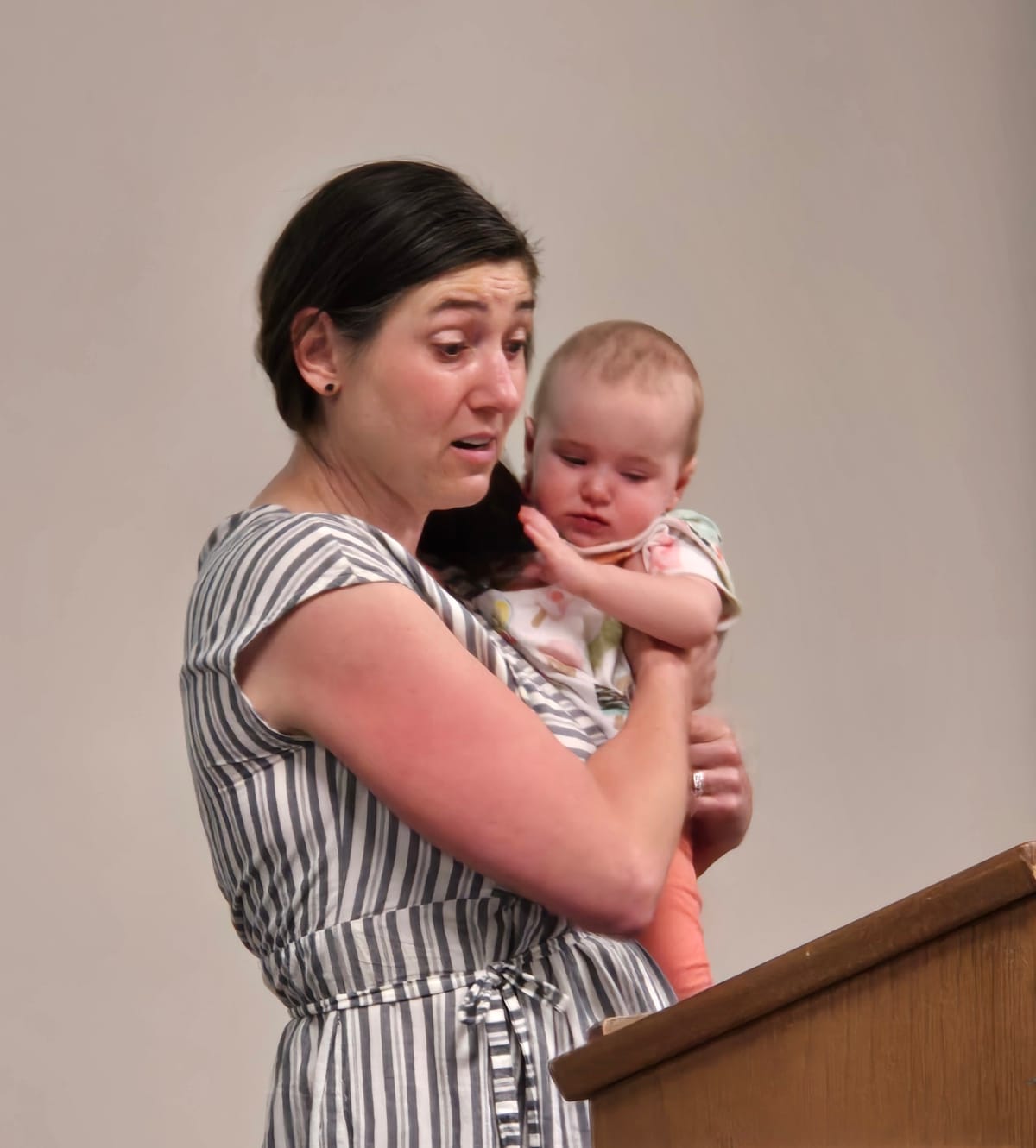
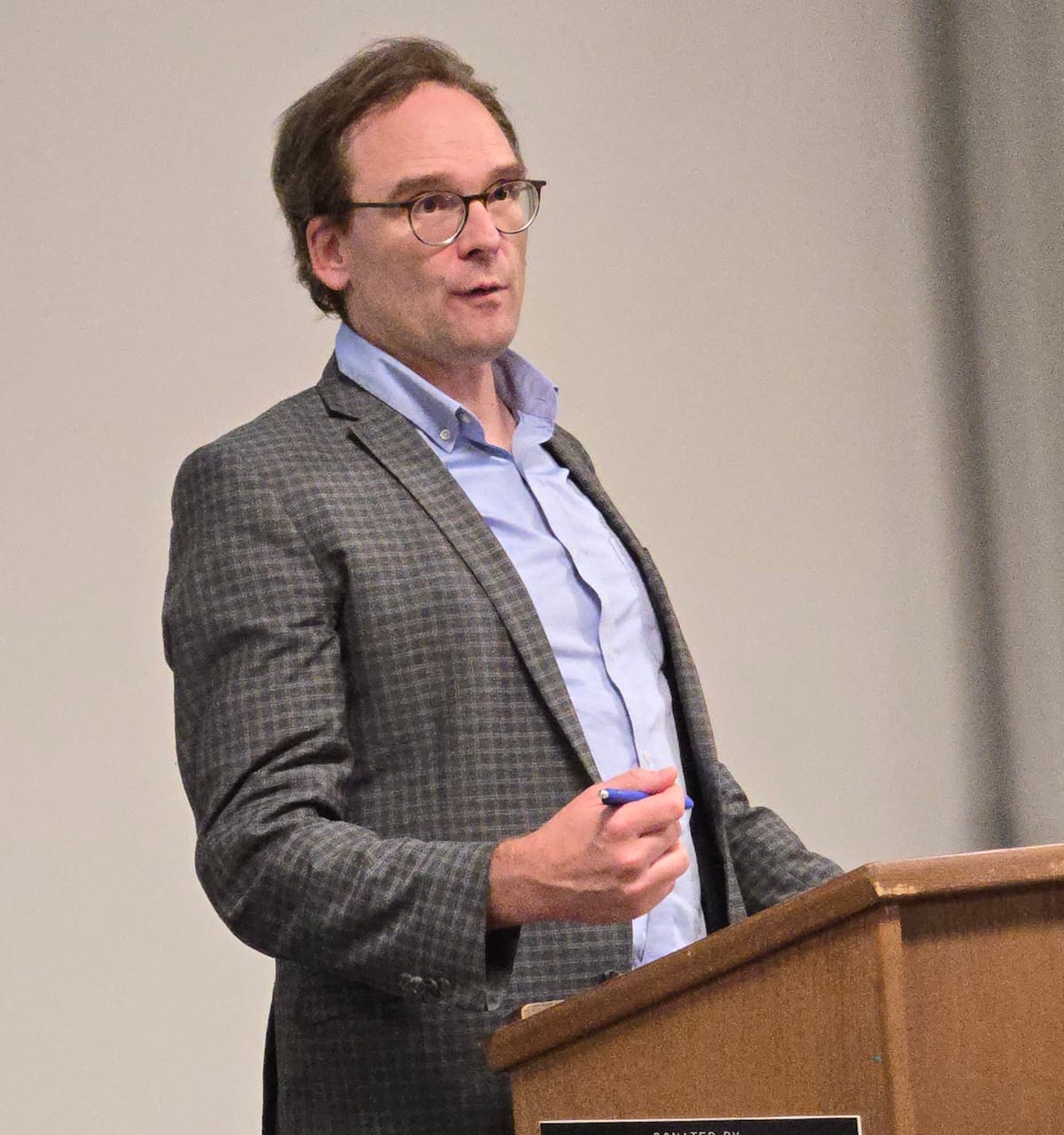
Top photos: Citizens who would be personally impacted by Medicaid cuts address a crowd of more than 40 people at the Medicaid Matters forum in Kaukauna on June 26. Bottom photos: From left, OBGYN Dr. Anna Igler and Outagamie County Executive Tom Nelson
In Wisconsin, Medicaid covers approximately 1.2 million people, or about 1 in 5 Wisconsinites, through various programs, including low-income health insurance (BadgerCare) and long-term care, such as nursing homes and home healthcare, for seniors and individuals with disabilities (FamilyCare/IRIS). Medicaid is also the largest payer for mental health services and for rural and low-income urban hospitals. Of the $11 billion Wisconsin spends on Medicaid yearly, $6.6 billion comes from the federal government. A 10 percent reduction in federal funding would require Wisconsin to either increase state spending by $600 million per year or reduce the number of people on the program.
“These are scary times,” said Tim Faust, Health Coordinator with Citizen Action of Wisconsin. “I’m not going to pretend that they’re not. There are a lot of people in the state and a lot of people in this country who don’t know if they’re going to have health insurance at the end of the year.
“Medicaid is essential, but for all the good it does, Medicaid remains in many ways an inadequate program,” Faust went on to say. “Not enough people have it, not enough providers take it, and many facilities depend overwhelmingly on it. So, (Citizen Action’s) goal is not just to defend Medicaid. Our goal is health justice, which begins when all people can get the health care they need when they need it.”
Outagamie County Executive Tom Nelson explained that funds from the federal and state governments are funneled to each county, where they are implemented through various programs. Nelson stressed the importance of Medicaid funding.
“At any given time, we have 35,000 open cases on everything from public health, mental health to Child Protective Services,” he said. “It is absolutely critical that we keep this funded. I know that there are legislators that will not listen to your phone calls. You might not get them to 'yes,' but you know what? It is their job to take your call. So do not take your foot off the gas.”
Dr. Anna Igler, an OBGYN, has been practicing in northeastern Wisconsin for the last ten years. Holding her own baby in her arms, Dr. Igler explained that Medicaid covers 40 percent of pregnancies in Wisconsin. An uninsured delivery may cost more than $20,000, and that’s without complications for the mother or baby. Maternal mortality has already been on the rise since the overturning of Roe. The loss of health insurance will increase the deaths of mothers and babies.
Senator Dassler-Alfheim acknowledged the fear people have and provided reassurance despite the legislature's lack of preparedness.
“Medicaid and the fear of systems and programs being taken from you means that we have to be prepared to step up then and make sure that everybody that needs our assistance gets that assistance,” she said. “We don't have a perfect plan for that. We don't have much of a plan at all. We are hoping that our courts and our guardrails that we have at a federal level do their job and protect our good people who are just trying to get by right now and utilize the systems that they've been promised all of these years. If they don't, we will be there. “





